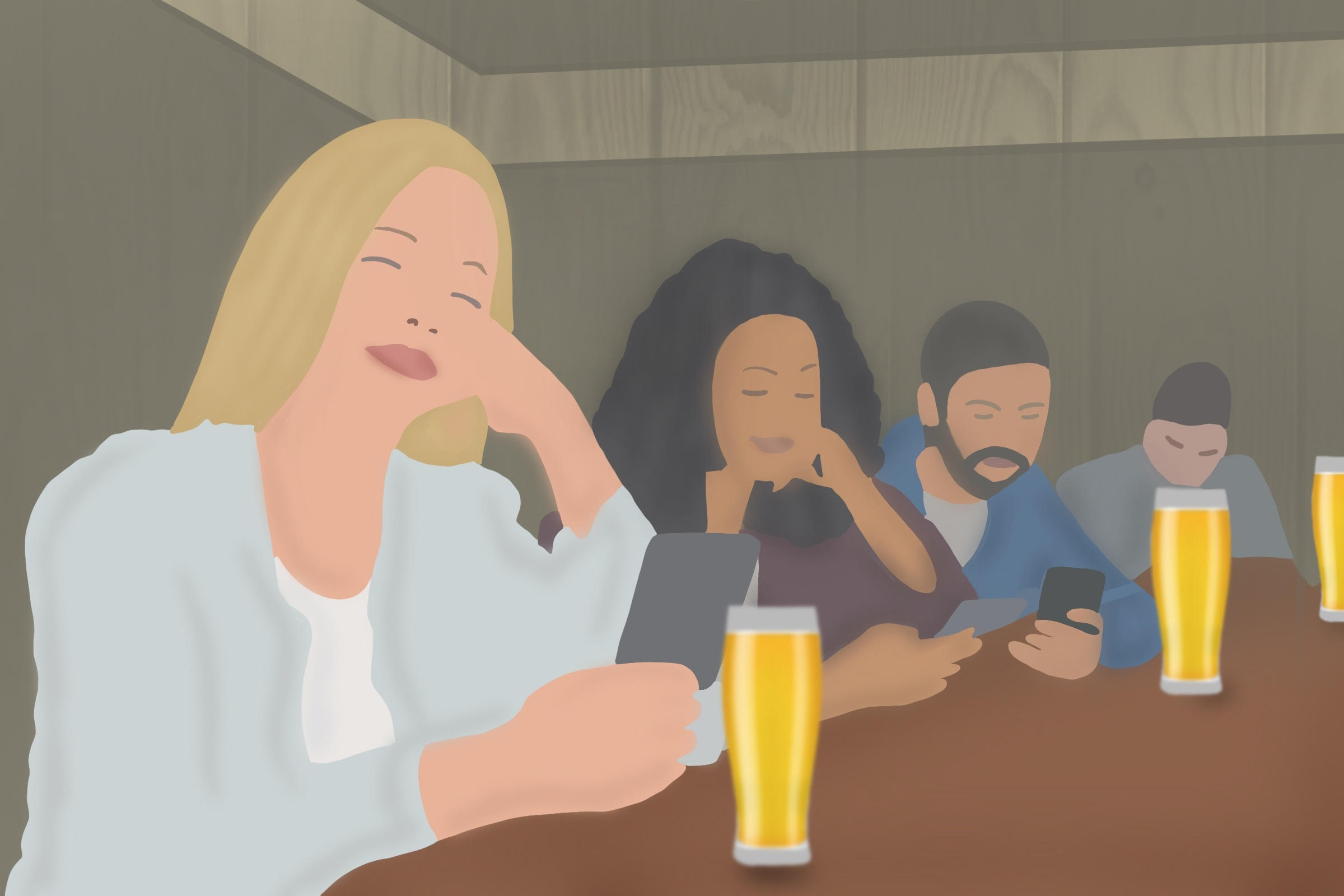So, why is this the case? The ultimate goal of online dating apps should be to function as a conduit in creating committed relationships, right? Wrong. The realm of online dating has become a multi-billion dollar industry — an industry that profits primarily off of user addiction, especially by keeping its users single. The way that the industry accomplishes this is twofold, relying on qualities of gamification and what psychologist Barry Schwartz refers to as the “paradox of choice.”
The presence of the choice paradox in online dating is perhaps best understood through the analogy of online shopping. Studies have shown that as shoppers are exposed to more options for potential purchases, they are paradoxically less likely to be satisfied with their ultimate decision. As our brains become inundated with a variety of choices, we often experience choice paralysis: An anxiety-induced state that prevents us from making a resounding decision.
On Tinder, the user’s experience of choice overload has become a frequent occurrence. In the emergence of what some are calling “serial swipers,” many users can be seen displaying strong hesitations to commit to a singular option due to fears of missing out on a potentially better one.
The infiltration of the choice paradox into the realm of relationships is especially dangerous. Unlike the case of online shopping, users aren’t choosing between products, they’re choosing between people. The resulting world of online dating has become a breeding ground for objectification, sexual harassment and insecurity, as choices are increasingly influenced by abundance and appearances rather than genuine compatibility.
The instant gratification offered by each ‘match’ causes the idea of exclusivity to appear unsettling, with many individuals remaining addicted to these apps even in committed relationships. Specifically, 30% of Tinder users are married, and another 12% are in relationships. Because of this, the online dating world has become a hotbed for cheating and noncommittal sex. Users find themselves immersed in an endless, twisted game, where matches and hookups function as points to keep score.



OKCupid's matchmaking circa 2009-2011 could have been considered "fair" from my 2nd hand knowledge. They had a pretty detailed model for the era which used a question & answer section with hundreds and hundreds of prompts, with no limits to how many each user could respond to. It literally got the person I knew who worked there married, before they worked there, which is why they wanted to work there (edit to say they celebrated 14 years/10 years of marriage together and I consider their relationship the most solid one in my social circles).
They then saw it reorganized by Match (which acquired it specifically because of the fairness and good brand it had acquired via word of mouth for being fair). And everything went to shit. Matches dropped by orders of magnitude, revenues soared, account deletions plummeted, and abandoned profiles skyrocketed.
One of the many problem with "dating" (matchmaking) apps is that they don't have a path to profitability through forming matches, really. They can do that for a while but the ultimate goal is just to get a large enough userbase to get bought by Match. Match's formula is really, really simple. To the point that there are dozens of clones unaffiliated with Match who try to do the same thing, they just don't have the existing userbase and presumably not enough runway to run it at a loss, advertise, and generate good word of mouth (plus the number of people not already soured by previous dating apps is probably dwindling compared to the pre-Match acquisitions era).